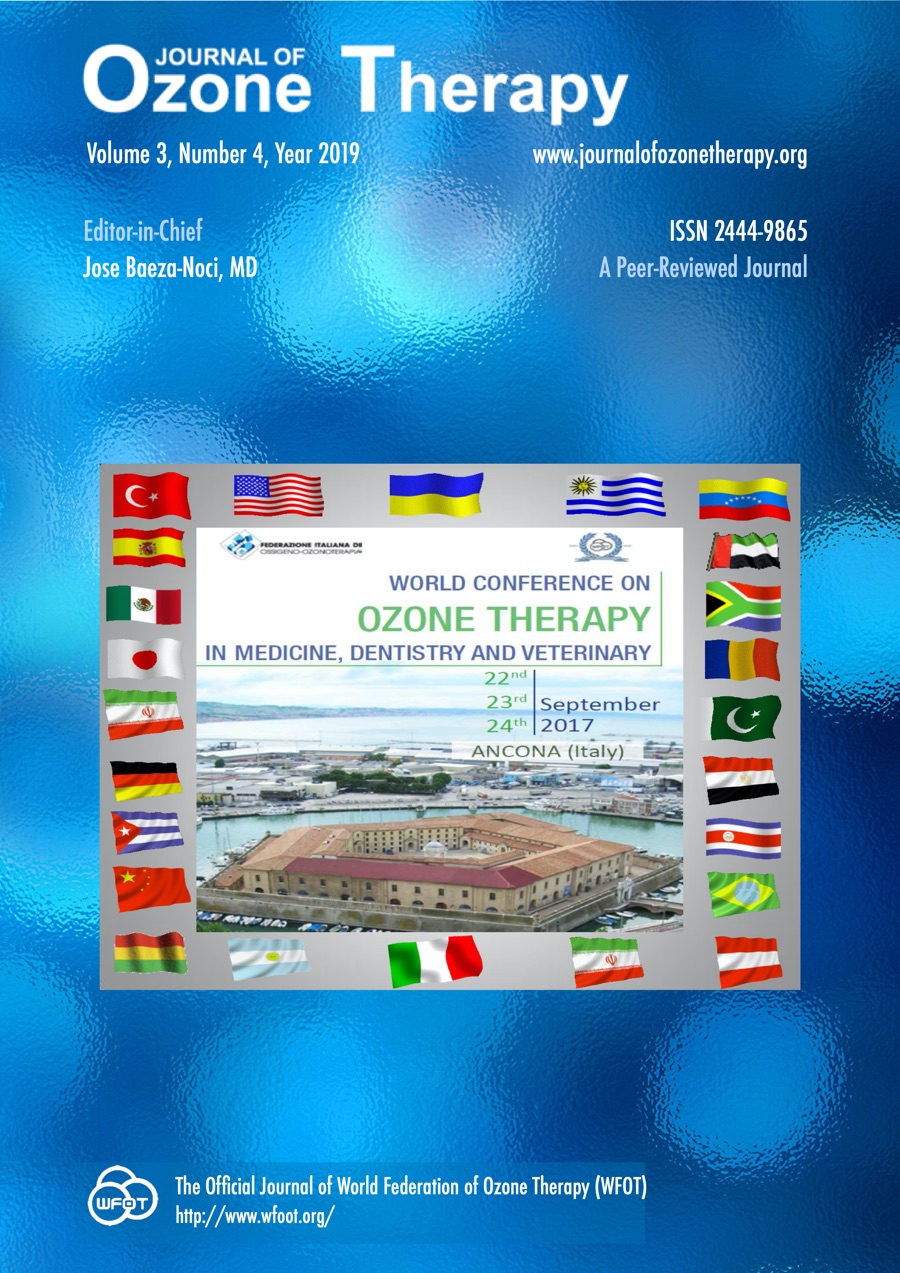Controlled study of the efficacy ozone therapy in Fibromyalgia, a randomised controlled trial [abstract]
DOI:
https://doi.org/10.7203/jo3t.3.4.2019.15424Paraules clau:
fibromyalgia, ozone therapy Resum
Resum
INTRODUCTION: Fibromyalgia meaning muscle and connective tissue pain it a disorder classified by the presence of chronic widespread pain and a heightened and painful response to gentle touch (tender points).
Other core features of the disorder include debilitating fatigue, sleep disturbance, and joint stiffness.
PURPOSE: The aim of the study is to see the efficacy of ozone in relation to other local anaesthetic and placebo for relief of pain.
MATERIAL AND METHODS: The Study involved 300 patients with classical Fibromyalgia (ACR criteria) age between 45 and 70.
The first group treated only with ozone 2 - 3 x per week for over 4 necks (15 mcgr/mL)
The second group with local anaesthetic /Lidocain 2 % 10- 20 mL)
The third group, placebo.
Several clinical parameters were monitored during a demonstration in 4-6 weeks.
The clinical examination included vital signs, pain using visual analog Scale, Duration of morning stiffness, night pain, NSAID consumption
RESULTS AND CONCLUSION:
1.- Ozone has significant effect in Fibromyalgia in relation to the other two groups.
2.- Function index improved in both groups ozone and anaesthetic.
3.- Ozone treatment is a safe therapy compared to the local anaesthetic.
 Descàrregues
Descàrregues
Descàrregues
Publicades
Com citar
-
Resum770
-
PDF 393
Número
Secció
Llicència
Journal of Ozone Therapy applies the Creative Commons Attribution-NonCommercial 4.0 International License (CC BY NC 4.0) license to works we publish.
Under this license, authors retain ownership of the copyright for their content, but allow anyone to download, reuse, reprint, modify, distribute and/or copy the content as long as the original authors and source are cited. No permission is required from the authors or the publishers.
You may not use the material for commercial purposes.
Appropriate attribution can be provided by simply citing the original article, provide a link to the license, and indicate if changes were made.
You may do so in any reasonable manner, but not in any way that suggests the licensor endorses you or your use.




